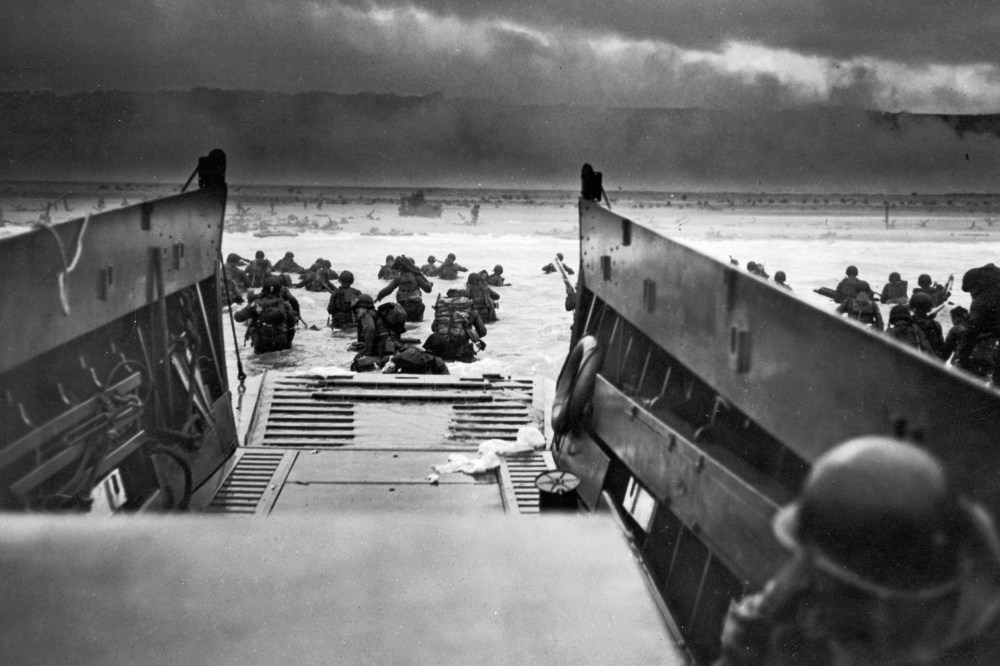On the morning of June 6, 1944, the United States, the United Kingdom and Canadian forces embarked on one of the most successful military operations in world history. They stormed the beaches of Normandy in the name of liberty and freedom. That fateful day on the beaches of Utah, Omaha, Gold, Juno and Sword changed the course of the war and, thus, the course of history.
The world was on the precipice: It would either fall victim to the brutality of the Nazis, or it would rise up to preserve democracy and human rights. The costs of inaction or failure were too high.
The world was on the precipice: It would either fall victim to the brutality of the Nazis, or it would rise up to preserve democracy and human rights.
It is often said that “History doesn’t repeat itself, but it often rhymes,” and as we reflect upon the 80th anniversary of the Allies’ victory at Normandy, we should take note of the parallels between then and now. Once again, the world is confronted with a regime that has shown a flagrant disregard for human rights and the international norms that have accompanied a more peaceful and economically stable post-World War II world. For more than a decade, Vladimir Putin’s Russia has ignored international law to advance Putin’s imperial agenda, including the partial annexation of Georgia in 2008 and the full-scale invasion of Ukraine in 2022.
Putin is supported by the People’s Republic of China and enabled by a resurgence of authoritarian pariahs, North Korea and Iran, that are actively providing one another with economic and military support. In addition, the world is now having to navigate the rise and potential weaponization of artificial intelligence, social media platforms and emerging technologies.
The winds of authoritarianism are blowing in every direction — leaving no nation, not even our own, untouched. The warning sirens are blaring that our adversaries are intent on dismantling the international world order and remaking it in their image.
We know this paints a dire picture. But just as we braced the beaches of Normandy with Allied partners, the United States is not alone in confronting these daunting challenges. Born from the bravery of Normandy and the eventual victory of World War II was an agreement to form a military alliance that would ensure that Europe and its allies would never again be devastated by or engulfed in a world war. That alliance, the North Atlantic Treaty Organization, is the greatest military alliance in history.
NATO is so strong 75 years after its founding because each nation is bound together by the belief that we are stronger together. Our shared defense and fierce protection of democracy unites us. Beyond that, the alliance helps protect our collective interests by pooling resources so we can respond to emerging security threats while maintaining competitiveness in cyber and artificial intelligence. In recent years, our European allies have stepped up, but they must do more to increase defense spending and invest in capabilities to ensure NATO’s strength. The addition of two new capable allies, Finland and Sweden, has bolstered our alliance to 32 countries committed to guaranteeing our collective security and protecting peace, democracy, freedom and the rule of law.

As Americans, we must never forget the role we play when it comes to establishing and maintaining world order. NATO has remained united throughout these dangerous times because Americans have been engaged. That truth harkens back to World War II, when America answered the call to join the war and fight for democracy. Since Putin’s full-scale invasion of Ukraine, America has answered again — not by sending our men and women to fight on European soil, but by sending weapons, resources, equipment and training to Ukraine and our allies to ensure they can claim victory.











